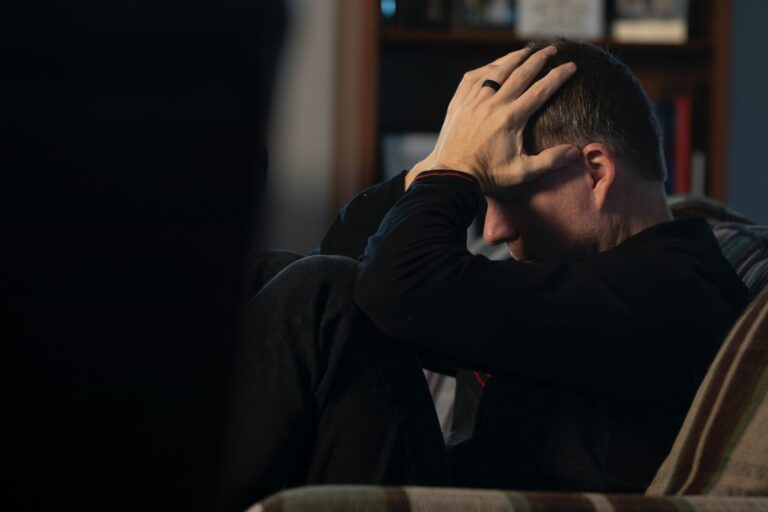Addiction recovery is complex. When you’ve lived in active addiction for any period of your life, beginning your recovery feels intimidating, stressful or downright scary. Learning to exist in your new life is not only about building new healthy habits and relationships, but recognizing how to keep from returning to past behaviors. As such, a big part of your recovery is recognizing your triggers. A trigger is a situation or event that compels a person with an addiction to use their substance of choice, and experience a return to substance use. A trigger can cause anyone in recovery to return to use. Because of this, it’s extremely important to identify and recognize triggers before they become a roadblock to your recovery. In this post we outline what kinds of triggers there are, and how you can begin to identify triggers in your recovery.
Internal vs. External Triggers
All return to use triggers can be categorized into two groups – internal and external. Internal triggers are exactly what they sound like, triggers that exist inside of us in the form of emotions. External triggers exist outside of ourselves in the forms of people, places, things or activities that compel us to use again. Below are some common examples of internal and external triggers:
Internal
- Uncomfortable feelings that you want to avoid
- Negative emotions such as anxiety and depression
- Feeling overconfident in your recovery
- Being consistently unsure of the recovery process
- Increased stress levers
External
- Spending time with old friends that you previously used with
- Being in a stressful situation
- Experiencing financial troubles
- Being in the presence of drugs or alcohol
- Certain objects that remind you of using
How to Identify Triggers in Your Recovery
Now that you have an understanding of what kinds of triggers there are, you can start identifying what yours might be. As mentioned above, taking steps to prevent triggers from occurring can reduce your chances of returning to substance use. With 40-60% of people in recovery experiencing return to use at some point in their recovery, taking preventative measures is necessary.
First of all, knowing your triggers begins with understanding yourself. As you pay attention to what feelings compel you to return to your substance of choice, you’ll begin to identify these triggers. Do you notice that every time you visit old friends you end up wanting to go to the bar down the street you used to drink at together? This is an example of a trigger creating an urge to potentially drink again. The trigger in this example is visiting with old friends. Because you associate spending time with old friends with going down the street to get drinks, this is a trigger you will need to either learn to cope with, or avoid. While avoiding triggers is a completely acceptable option, sometimes they are unavoidable.
When you can’t avoid triggers you must learn to cope with them. A safe and effective way to begin coping with triggers is by using Cognitive Behavioral Therapy (CBT). CBT is a form of therapy that focuses on reworking patterns or ways of thinking, and teaching individuals to learn to cope on their own. Finding a therapist can take some time, but some recovery programs can help set you up with a therapist to begin working with. If you need support in the meantime, we recommend that individuals in recovery work with Peer Recovery Specialists (PRSs). PRSs provide resources that can help you get started on your recovery and are incredible advocates for their clients. Talk to a PRS now to learn more about your options.
Triggers Look Different for Everyone
Just as your experiences are unique, so are your triggers. It’s important to get to know yourself in recovery, and find what works for you. Creating a recovery wellness plan guides you in taking steps to reach your recovery goals, and familiarize yourself with what your unique journey will look like. Recovery wellness plans are composed of your physical, emotional, and spiritual goals and will help you develop a routine that fulfills each of these integral parts of you. Additionally, one incorporated piece of your recovery plan will be understanding and coping with triggers. Read all about recovery wellness plans here. As you progress in recovery, so will your wellness plan.
Ready to Create Your Recovery Wellness Plan?
Sound like a big step to take? That’s what Peer Recovery Specialists (PRSs) are for! When you begin working with a PRS they will get to know your experiences, and work on developing a comprehensive plan that will support your success in recovery, including how to manage potential triggers. You don’t have to walk this road alone – PRSs are here for you to lean on. Start creating your recovery wellness plan with a PRS now!
Sources:
APA. “What is Cognitive Behavioral Therapy?” American Psychological Association, 2017. https://www.apa.org/ptsd-guideline/patients-and-families/cognitive-behavioral.
Accessed 3 January 2023.
Caron. “Behind the Numbers: What Relapse Rates Really Tell Us.” Caron, 2022. https://www.caron.org/blog/what-relapse-rates-really-tell-us.
Accessed 28 December 2022.
North Georgia Recovery Center. “Internal Vs. External Relapse Triggers.” North Georgia Recovery Center, 2022. https://www.northgeorgiarecoverycenter.com/blog/2020/december/internal-vs-external-relapse-triggers/#:~:text=A%20trigger%20is%20social%2C%20psychological,eventually%20leading%20them%20to%20relapse.
Accessed 28 December 2022.





